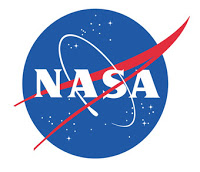I was only in kindergarten when the Challenger exploded, but I remember it clearly because it was my first experience of chaos.
When you're five, you believe that adults know everything, control everything, and can fix anything. I got off the bus on January 28, 1986 to find my mother crying, which was shocking enough on its own. The worst thing my child-brain could conceive of was that one of our pets had died, but she explained what had happened over my snack.
I remember what kind of jelly was on my PB&J. I remember what my juice box looked like. I remember that my tiny tummy folded up on itself and refused to eat anything else.
I suddenly understood that adults could die. Even worse, a teacher - a type of adult I thought of as being super-human - was just as susceptible to a random accident as anyone else. I peeked at the TV while the Challenger exploded over and over, at a complete loss to wrap my thoughts around what had happened. There was nothing to recover, no one to save. Nobody could do anything to help.
For the longest time this is what space meant to me - danger, chaos and helplessness. I couldn't believe that anyone would ever try to go into space again, after seeing the shuttle explode.
But people did... and my perception of space began to change. As I grew older it represented amazing courage and human ingenuity. It meant that there were people brave enough to strap themselves onto a rocket in the name of science, secure in the knowledge that the people who had built it were confident that it was safe.
I'm still never going to get on a shuttle, I admit. Even if that option were open to me, my fear of heights has ruled space travel out. I think the experience of seeing our planet from space would be so surreal that my mind couldn't grasp it in any case, and so I'll settle for subscribing to National Geographic...
... until we use up all our freshwater and have to go find another blue planet.
